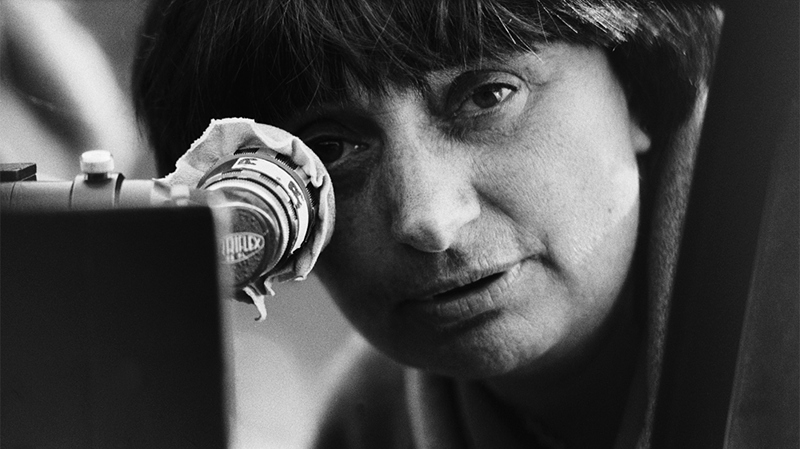In the UK music and culture magazine The Quietus, Robert Barry offers a poignant personal remembrance of French film giant Agnès Varda, who passed away in March at the age of ninety. Barry interviewed Varda once and later found himself living down the street from her in Paris. In his reflection about Varda, he zeroes in on one of the most remarkable aspects of her filmmaking: it is at once intensely methodical and exuberantly playful. Here’s an excerpt:
I remember once attending a talk by the great director Terence Davies. He said the first thing he does when he starts editing a film is he goes through all the rushes and picks out his favourite shot, the most beautiful, the most treasured image of the whole shoot, and immediately discards it, lest the charm of the isolated shot distract him from his true priority: the story. Such a philosophy strikes me as totally alien to Varda’s way of thinking. For her, the primary task was the gathering of images, the encounters and occasions produced in the process of gathering images. Story – and filmic structure – proceed from there as a kind of emergent property.
When I met Varda, ten years ago, she told me she had only seen maybe ten films when she started making her own. Maybe that’s why none of the established rules and norms of cinema ever seemed to apply to her work. Varda’s unique cinécriture was a genre in itself, a whole approach, a way of life. Hers was a voice as singular as Lynch, as Tati, as Ozu. “Where does play end and art begin?” Varda asks in Les glaneurs et la glaneuse. Perhaps the lesson of her cinema is that play doesn’t have to end in order for art to begin.
Image of Agnès Varda via Variety.
